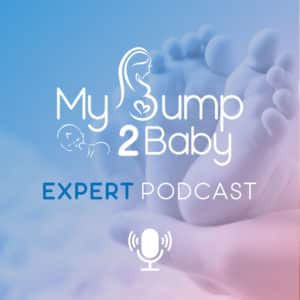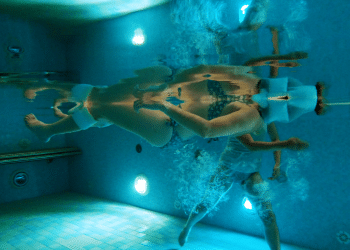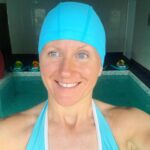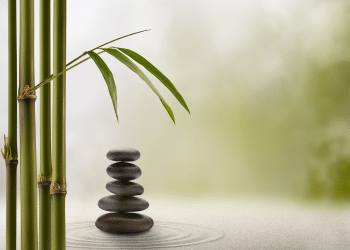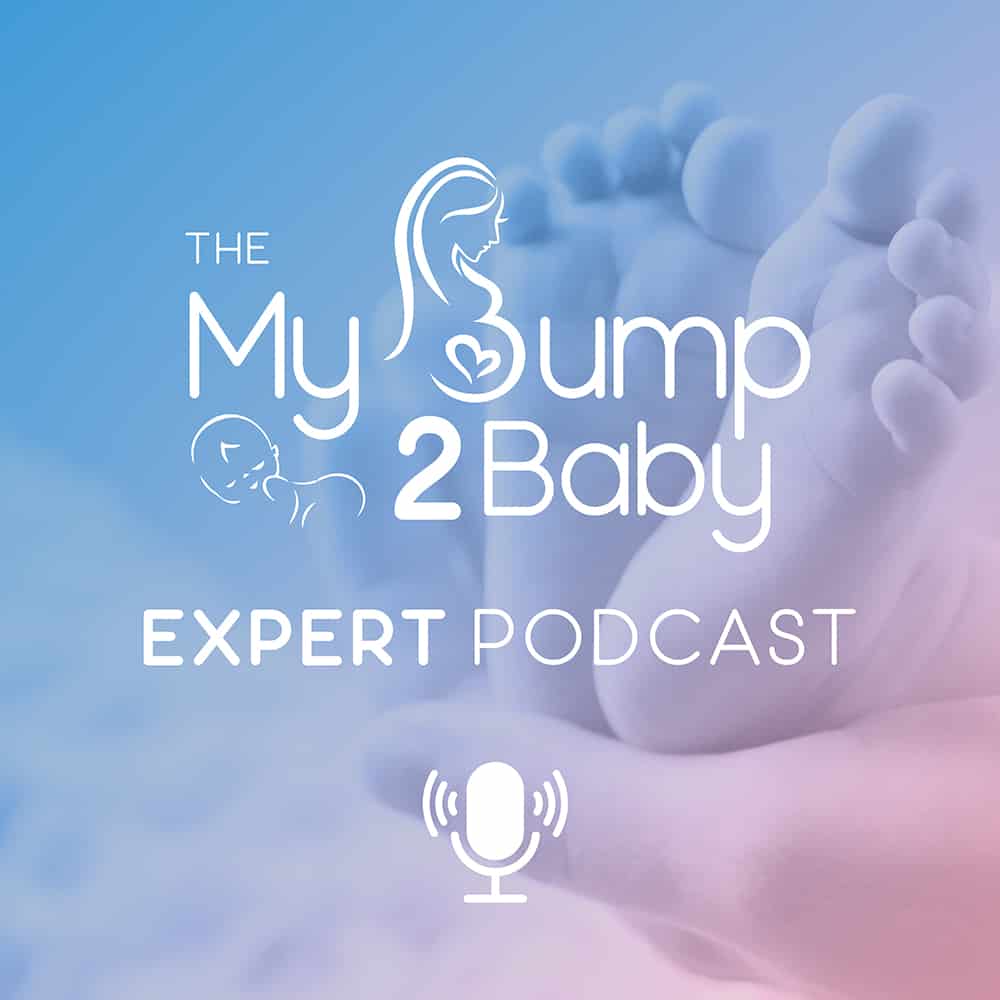- Hydrotherapy
On today’s episode of the MyBump2Baby Expert podcast, Carla invites founder of HE Aquatics Helena on to the podcast to discuss Hydrotherapy, they discuss what it is, why it is good for expectant mums and even babies.
Facebook https://www.facebook.com/heaquatics/
Instagram https://www.instagram.com/heaquatics/?hl=en
Website https://heaquatics.com/
[00:00:00] Carla: We are Google’s number one, baby and toddler directory. We cover everything from pregnancy to preschool, and we are home to over 8,000 business listings. Join over 160,000 parents using our website each month, and you can find your local groups, classes, services, and support in your local area. At My Bump 2 Baby, you know that we are really passionate about encouraging parents, grandparents, and carers to book in with their local first aid providers.
[00:00:40] Carla: Head to www.mybump2baby.com to book in with your nearest first aid provider.
[00:01:00] Carla: Hello and welcome to my Bump 2 Baby Expert podcast, where we bring experts from all over the UK. To answer your questions on everything pregnancy to preschool.
[00:01:25] Carla: Today I am joined by Helena from HE Aquatics, and we’re gonna be talking all about hydrotherapy and all of its benefits. I hope you enjoy this episode.
[00:01:42] Carla: Hello everybody. I’m welcome to My Bump 2 Baby’s Expert podcast. Today I am joined by the lovely Helena from HE Aquatics. Hello, Helena. How are you?
[00:01:53] Helena: Hi, I’m well. Thank you very much for inviting me and giving me the opportunity to speak about my passion connecting with people in the water.
[00:02:02] Carla: Oh, yes. And it’s, I love everything about your story and everything like that and how you started it. So can you introduce yourself and a bit more about he aquatics?
[00:02:12] Helena: Yeah. So, um, I’m educated professional certified hydrotherapy practitioner, swimming coach and teacher, yoga teacher for swimmers and a performance artist in water. So I’m, you might call it just an expert in aquatics to, to make it into one word.
[00:02:31] Helena: And my background is I was born in Bohemia in a town called (inaudible) the natural hot. Springs and I’ve grew up in a culture where after walking, hiking, skiing, we go and bathe in a hot mineral springs. And also in my family history, I had a grandfather who suffered his Parkinson’s disease and I’ve seen my grandmother stretching him doing yoga with him and floating him in a hot water.
[00:03:00] Helena: So without actually realising that, through 22 years of my artistic practice immigrated from Bohemia, from Czechia, uh, to UK, and then done couple of degrees in different art fields. Started as a sculptor, then become a dancer and performance artist. And then I realised that all these years, all I wanted is to connect with people in water and from solo performances and doing artistic practice, video installation, sound installation in water.
[00:03:32] Helena: I’ve realised I, I don’t want to be like a goldfish in a, in a glass tank, you know, done it, performed it in Sao Paulo in birthing pool in hydrotherapy, but I really wanted, not the people to be just a passive spectators. My heart was telling me I really want to invite people in a water. So first I was inviting them to watch my performances, then to interact, then teach them to dance and float.
[00:04:01] Helena: And I realised through teaching them how to float and dance in water. There are so many therapeutic benefits, but also people don’t know how to swim. Lots of, because you get people who can swim and they’re interested in a speed and in a winning medals. Yeah. They not, they only come if they have got an injury or want to prevent injury. But people who, who love the water. Who wants to relax and who wants to do something a little bit different and come and they, they learn to build a relationship with both a nice, positive relationship with and, and we talking people of all ages. Yeah. And if you think of the life is a cycle, so, and we think of a conception.
[00:04:44] Helena: So after an implantation when the baby is growing through the three trimesters. So then I float pregnant women and they can, they’ve got this beautiful opportunity to bond with the unborn baby and, and invite the partners too. So it’s three, three of them floating with me. Often, mom says when they float in stillness, the baby tumbles and kicks and pushes, and they can feel the lots of happening inside the tummy.
[00:05:14] Helena: And when the mum floats in nice whoosh side to side. I’m pulling her 360 degree, depends on the level of, uh, pregnancy. Then the baby sets asleep. Like it’s a, it’s a rocking. So the baby’s already building this lovely, lovely relationship with the mom. Through her hydrotherapy session. And then when baby is born, they can have a beautiful sensor, uh, sensory experience through the bath babies program.
[00:05:44] Helena: And then when baby is two months old, it can come to baby swimming program with aqua sensory approach and water touch and then, uh, and then then going to do baby swimming, toddler swimming, children’s swimming, adult swimming, you know.
[00:06:00] Carla: Wow. Yeah.
[00:06:02] Helena: That’s my story. That’s what I, I I’m really feeling passionate and it’s been a long journey with many trainings, but, um, I am feeling in contact with all my coaches and, uh.
[00:06:14] Carla: It sounds amazing. It sound, that is where I wanna be at the moment. I’m just thinking, where’s my nearest place that I can go and do that? Cuz it just sounds so nice and so calm. And that’s something in this country, we, we don’t really take that time sometimes too, relax and too, be at one with our bodies, if you know what I mean.
[00:06:32] Carla: Cuz it’s always the next thing I’ve gotta do. The next thing, the next thing. Yeah. So it’s important to take that time. And I love the idea of what you’ve said about pregnant women coming to your classes and just doing that. It sounds, especially when things get really heavy when you’re pregnant, it’s quite hard isn’t it? To, you know, it can be hard to even walk towards the end. So to just like be able to float I bet. It’s just so nice.
[00:06:55] Helena: That’s right. Absolutely. Like, um, You know, they often come, women come because they, they feel heavy. The tummy is pulling them forward and they feel they overarching their back. They are in a pain.
[00:07:10] Helena: And so to come and have a break from the pain, release, the tension. I mean, if you think about, um, the what is hydrotherapy, which is. Water. It’s more dense than air, so the pressure of water on our skin, on our body. Then when we float, we are in a waste-less space. So like the vertebrae. Um, when I’m floating people, they’re relaxed.
[00:07:43] Helena: I’m elongating their spine through special massage called Aquatic Body Work, and I’m creating space between the vertebrae and, and, uh, around, and the entire muscle tissue can really relax. And, um, I also wanna say that the, basically. What do you call it? A hydrotherapy or aquatic body work or watsu, which is shiatsu in water or healing dance or water dance it. You know, there are so many modalities. You know, there are cold water therapy. Cold hydrotherapy is hot water therapy or hydrotherapy. You’ve got a hydrotherapy pools. You’ve got flotation tanks. But what I do is, is aquatic body work, which one form where? You see as a water cure, you, the water compresses, um, through, embraces or wrap your body and, and then it gives the water properties, the, the pressure on the skin and the, the temperature.
[00:08:51] Helena: Like the ideal temperature for pregnant women is 35 degree. If you go above, you know, some hydrotherapy pools has got 37, then there is a risk of overheating. But when as long as you stay 34, 35 degree, it’s warm. For the woman to feel relaxed, like she would have her bath, but without overheating and the muscles really relaxes.
[00:09:17] Helena: And also the water pressure on the, on the body, it promotes the circulations. Um, sometimes women comes when they’ve got like a numb fingers, numb tools because the circulations is, um, through the pregnancy. You know, it’s not, uh, it’s not ideal. So, From the blood circulation point view, from relaxing the muscles for releasing pain and strains.
[00:09:41] Helena: For working on a flexibility. Women need to work on flexibility to prepare the body for a child birth, but also for to keep the body strong, flexible for carrying the extra weight. Mm. And um, I’d say also like, you know, sometimes women can do these beautiful programs online, the antenatal programs and yoga, which is great, but sometimes that’s for women who are with a strong will power, who’s got maybe a bit of a background towards the sport or exercise, you know, but about women who, who, who don’t, who are a bit more passive.
[00:10:25] Helena: So in here you can just enter the pool. Have a power nap while I’m stretching you and floating you, you know, so it’s a, it’s all done for you all. I ask you to give me your time and breathe. For, for everything we do is led by your breath. So you as a pregnant mom, you are in control. You are in control over your buoyancy.
[00:10:50] Helena: We can try different buoyancy aids putting on your legs. So some women’s like sink, some women’s like float. We’ve got depends on, uh, whether we’ve got muscly body or whether we’ve got soft tissue body. So I call everyone either floaters or sinkers.
[00:11:06] Carla: Yeah, that was brilliant.
[00:11:09] Helena: And then, then we basically start with a meditation against the wall with grounding with body in line.
[00:11:19] Helena: So where your spine is straight, but relax, uh, just against the natural curve of your spine against the wall. Your hips are at the same height. Your feet are grounded, your knees are relaxed, so every time you inhale,
[00:11:40] Helena: And after some people, you know, after about second, a few seconds, they squeeze my hands and they’re ready to flow. Sometimes people take 10 minutes till they’re ready to flow. They really want to calm the mind, connect with their breath, and I’m teaching them to breathe deeper, to bring more fresh oxygen in the blood.
[00:11:57] Helena: So I’m teaching them to use the diaphragm and how to breathe down there in a tummy. And then in a chest. So, uh, you see this almost like, you know, like a sea wave or wave. We create that with our tummy’s. This like the tummy expands, the chest expands with an, the pop raises up like a balloon and then drops down as the chest drops, as the tummy flattens.
[00:12:21] Helena: And it’s so beautiful to see. And then that gives me, an opportunity to connect with the pregnant woman, connect with her heartbeat, connect with her energy, with her breath flow, because all the stretches, massages I do is led by her breath. So my breathing needs to be connected to her breathing. And then we go into a profound relaxation and entering this immersive experience with, um, Aquatic movements, which takes the body to through these beautiful limits like, um, So when you stretch alarm, sometimes people are really, really trying to break the water equipment to be like ballerinas.
[00:13:10] Helena: And they go into splits and they strain, you know, strain, the lower back strain, their inner tight, but in the water, because you are very close to the body temperature. So your body is relaxed. Your mind is relaxed. And then when we stretch to ha to pattern of the breath flow, we, we can’t overstretch. You know, I’m pulling your arm one direction and the body follows with the water.
[00:13:35] Helena: Mm-hmm. Um, um, you know, I’m stretching your legs up into ballet leg and, and, and the body follows. So it’s, it’s much more gentle, safer way of stretching. . Some, some people call it guided meditation. Some people said, like, some women said like, I’ve been going to yoga class for 30 years, and I, and we meditate and I often fall asleep and or you know, and they manage to go somewhere, but in the water, they say that after an hour with me, they are in a such a deeper consciousness, such a deeper meditation, because I guess depends on the people’s view. You know, whether you are Atheist, whether you’re scientists, whether you open-minded to different religions or spiritual belief, but, It’s been said that there’s a really beautiful role by my teacher Harold, the founder of water therapy.
[00:14:30] Helena: And it’s really makes me think, because that’s what brings us women or us adults with the babies, uh, why it’s all good for us. It says, It was said in Egypt that water is given the soul as a compensation for making, for taking a bodily form in water. Our bodies finds the freedom the soul has lost watsu which is the shiatsu in water is the continuing explosion of that freedom. So you are in a water. If you think we come from water. We were born, we were floating in amniotic fluid. We are made of water when babies are born in 95% of water and as we age, we shrink to 75% of water. Then when we are going in water, our body mind, you know, if so really relaxes on a deeper level.
[00:15:25] Helena: And I think it’s still even, you know, even Egyptians who are using water for this form of relaxation, but it’s still a quite an unknown form of a therapy. Not many people know people go swimming, people do water sports. They want to win the medal, but they don’t realize that actually way of calming the mine and. Recharging the body like you put your mobile phone overnight for plugged into sockets to recharge.
[00:15:56] Helena: But us, we also need to recharge. Ideally. I know Great Britain is a small island, but if I had the power, I wish. To all the architects to consider the way they build bathrooms. So we have a bath, we have a shower, and we have a flotation tank. I wish everyone’s had opportunity to float and relax on or adapt the bath to kind of bigger hot tub.
[00:16:23] Helena: So babies and parents together on their own can float and we can really recharge, you know, all. And melt away all, um, the physical, um, problems, but also the mental health problems, especially when we are out of control. When, you know, think of Brexit, covid, Putin, you know, there’s always some global crisis, which then affects your own community or personal or family crisis. And what do you do when you are waking up in a night and can’t sleep and feeling so anxious in your tummy? Yeah. You know, so I feel it’s more needed. It gives me goosebump talking about it. I, I feel. It is so, so needed now.
[00:17:15] Carla: Yeah. You’re so passionate about it and you know, it, it really shines through and, and it sounds absolutely amazing because I do know the cost of living even, you know, the price of everything is increasing, isn’t it? And people are just trying to kind of survive. A lot of people just trying to kind of survive really. And just having that time to, to switch off and float and just feel. Feel the water and just the calmness sounds amazing. So, yeah. So if, if someone was thinking about starting hydrotherapy, what age could they start? I mean, could they start from a young age or can it, is it for any age?
[00:17:55] Helena: I say it’s for any age. And from a professional experience working 22 years in water and with different modalities, um, I recommend we can, I reckon if we start with the pregnancy, not the first trimester of a baby, because we need to make sure the doctor, the mom, you know, once the mom passes the three months and then there’s less risk of miscarriage, and doctor says yes in order the green button, press the green button.
[00:18:31] Helena: Then mom can come and during the second and third Trimer can come and have this experience. And then when the baby is born, I’d start is Bath Babies program where either online, uh, people can do, um, bath baby and being led, how to create a beautiful home sensory room using some, lighting system, and then how to create the second skin using the soft fabrics and a nice thick towel in the water and the baby, and then the baby holds and how to enter the baby.
[00:19:08] Helena: So it’s not about keeping, we everyone knows how to wash their hands and how to wash their baby. You don’t have to be told that, but this is about how to create this, uh, calm space and how to be present and how to hold the baby in the water. What to do with the baby in the water, making a little, uh, massages by creating like water seeds, the way you move the hands in water.
[00:19:35] Helena: You’re creating water currents. Around the baby’s skin, which is nice, or stroking the water like it’s called a velvet blanket. There’s so many things we can do. Like my mentor Joe Wilson from, Aqua Sensory, she’s just releasing a course. 52 holds, you know, and there’s always, you know, I’m nonstop learning. So after I finish one course, I’ll go to the next one and just, I, I’m like a sponge, you know?
[00:20:00] Helena: They said baby students are like a sponge, but, so as practitioners we constantly want to develop more skills to. And enrich our client’s, experience our community, and so babies go in the past and then go in the pool and then all the hydrotherapy, you might, you might know it more as a baby swimming, you know, you’ve got the S d A or swimming England, baby swimming classes, but.
[00:20:26] Helena: On top of that, some practitioners like myself with my school aquatics, I have trained in aqua sensory in a water touch, and I bring aqua sensory into the baby on the top of the curriculum of the bath, of the bath baby, of the baby swimming because. I really believe it’s important to, uh, teach the baby, um, water safety lifesaving skills, planting the foundation for swimming skills through games and songs and sensory activities, but also also to really connect with the baby and then use the water.
[00:21:06] Helena: The water is the main teacher and I’m just an extension. I’m teaching, I am showing principles. For the parents to support the baby, to swim and to float and to receive this therapy. So as a, uh, as like the contrast activity, I bring the hydrotherapy for the babies, then the toddlers, and then the children and like with the children, especially children who might have a little bit of mental health issue, physical health issue in a special needs school or, or even non-disabled children who, who. Who are not into the racing, swimming, or water polo or surf, life saving, you know, who wants to enjoy and play in water. It’s nice to bring the hydrotherapy to them to, and then different ways of moving, floating, and even dancing in water. And then you’ve got the adult or young adults who perhaps, um, Maybe, um, feeling a bit self-conscious about their look.
[00:22:12] Helena: You know, when we all were between the 12, a 12 age, 12 and 16 women, you know, young women, we were quite conscious about, look, there wants to be in a big public leisure centre so they can come for a private sessions or maybe group of younger girls and they can do floating, relaxing, massaging, stretching, and, and then do maybe bit of artistic swimming dance in the water.
[00:22:38] Helena: And then, um, then you’ve got to the adults, you know, busy working people who wants to relax their mind, take a break, come afford or haven’t got a time to go for one week holiday, reading your favorite book next to the pool, but have your 60 minutes, 90 minute session to recharge, to rejuvenate.
[00:22:57] Helena: Then we’ve got mature age, you know, people are 50 plus, 60 plus who starts to have some body failure or wants to preserve their body. So they come for, uh, sort of almost like, um, help to, um, prevent their Parkinson’s or slow down or get a break from arthritis and, you know, a little bit more rehabilitation. For everyone, you know, like it’s, yeah.
[00:23:32] Helena: It’s for everyone. Everyone can get something outta it. And some people just wants to be 90 minutes in stillness. Yeah, but they feel too claustrophobic to lay in this coffin, like flotation tank. I’m not saying it’s bad and scary, but No, everyone wants to be in this narrow, shallow water. Salty water. Um, Still, you know?
[00:23:54] Helena: Yeah. You can take your eyes and if you like sleeping on your back and you can be 60 minutes, 90 minutes on your back in the stillness quotation tank is great. But if you don’t, then you want to go in a hydro pool, float on little bit on your back, on your side, on your front while you being stretched, you know?
[00:24:15] Helena: Or even move. So there’s a way of, I did, um, Therapist is there to do all the massage stretches for you while you are surrendering. Mm. Which is okay if you can surrender, you know, but there’s just people who just come and it’s not going to fight it. You know, you get men who has got, you know, businesses making lots of money and they are so in control.
[00:24:43] Helena: They, they just don’t, they really struggle to surrender. So, I found sometimes it takes them few sessions out, so they get five sessions, 10 session package, and then they can also give them an options. Okay. Why don’t you move the way you want to move? So if they are in a stillness, then, but as soon as they start to move, then I, they, I work with them more like, I’m like their resistance tree.
[00:25:10] Helena: So I support them. I encourage and amplify their movement. And it becomes more of a dance, you know, in the water can be almost like, can look quite, uh, dynamic stuff. Yeah. But then the man just feels like, you know, sometimes people has got emotion chaps, you know, and like if you are rugby big player, you are really big athletic body and then you start to like move, you know, and it’s, uh, So it can, it can look quite violent sometimes, but Yeah.
[00:25:43] Helena: Yeah. But then the man towards the end of the session, did they fall asleep in your arms like a baby, or cry on your shoulders or something? Something has, you know, a. Whatever they call it. The armour has break and the healing process started and it’s so beautiful.
[00:26:00] Carla: Oh, wow. It sounds so good. It really does. I mean, there’s so many benefits. I mean, I did have some questions here, but I actually think you’ve, well, you’ve answered them all. Honestly. It’s been really, really useful. This, I, I’ve really enjoyed it. What I, I mean it. For everybody. We all know someone older who could benefit. And also, I mean, I think just, I think for a mom who is always on the go, being able to even just come away and have 60 minutes, 50 minutes on their own. Just floating. It sounds like a dream. It really does. So, wow.
[00:26:39] Helena: Yeah, because moms, as they, they think of the husbands, they think of children, they think of dogs and home, and sometimes they work part-time, sometimes they work full-time. They on, as you said, they on the go all the time. And when do they have a time and energy to think about themselves?
[00:26:55] Helena: Mm. When, when do they recharge? You know? Um, and then, and a father thinks about the children and he is the provider and, and don’t always have the time and energy to, for the mom. So then if the mom goes to the therapist, and maybe some people don’t like to use the words therapist, you know, like in America, everyone’s got a therapist and it’s socially acceptable.
[00:27:17] Helena: I feel maybe that’s my personal experience, but in England, when you say go to therapist, like you’ve got some big problem. It’s something to be high behind the closed door. You know, it’s something to be embarrassed, but it’s not. It’s like, no, it’s not. It’s, it’s okay to show the vulnerability and to observe and but to, to have someone to do an active listening, you know, in a pre-session consultation, the mom can just have a verbal diarrhoea.
[00:27:41] Helena: She can say whatever she wants, and it’s all confidential. She can cry, she can get a hug. You know, I am there for her hundred percent. And when we enter the water often, like even a series of sessions, the first session is longer because it’s not so talking. When we, when the talk has been done and we go in the water, next time you come, you know what’s to expect.
[00:28:06] Helena: So it’s less talking and it’s really looking forward to dive into that zone, you know? So it’s spending more time in the was after that. Just few words, exchange and just plugging in and more and more, uh, you come, I have a people who come on weekly basis and, and they, they just like straight away they know I put the, i, I already know the buoyancy.
[00:28:28] Helena: So we just, we just. Exchange few words, quick meditation against the wall, putting the floating on, and then float can just maximise the 60, 90 minute session just for them to be in that calm zone. And they, everyone lives with a massive smile and just radiating. And then that experience doesn’t go, like if you go to Costa have a coffee and cake, how long time it takes to drink it. You know, you spend 15 pounds, you drink it, you digest it, and it’s gone. But with the 60, 90 minutes of experience, and the whole week, you are in that calm zone, children’s comes with a bad grade from the school, husbands comes agitated. Nothing rocks you.
[00:29:15] Helena: You know, you are, you know, in that lovely space. That lovely space where you just, you take it and you hold it, you don’t hold the space. And, you know, it’s, it’s a real way of. And I, and it’s not me who does it. I cannot support people. It’s, it’s, them, you know, it’s yourself who do it. I just enable you. I hold the space for you for your journey. I do not promise I can heal you. Come, I can heal your illnesses, but I can help you on your journey to go through it. So I feel when people, especially when they go through something quite traumatic, like the bereavement or Lost baby or cancer or you know, something which is so painful and then.
[00:30:05] Helena: You write it down. If you go to therapist where you just talk, they tell you to write it down and write it down and you write, you know, diary after diary and then is books which you then burn or you know what to do with it or, but in here it’s like you’ve write it in a page, you photocopy a hundred times and then a page become blank. You know, I’ll take you dip. You like the tea bag in the water and it washes. Washes those things away.
[00:30:33] Carla: Oh wow. I love that way you’d described that it’s, yeah. Wow. It sounds amazing. I mean, I’m actually, I definitely will be looking at something like that. I think it’s great, great way to kind of be at one with your body and just, you know, I’m all for trying different things as well.
[00:30:52] Carla: I think it’s really important to, for people to try different things to see what works best for them. Um, but yeah, I think that.
[00:30:58] Helena: Somebody needs talking. Somebody needs movement. And especially if you’ve got, um, stored in your body, something which happens between the conception and the birth or during the birth, you know, the, there is called, um, perinatal, transpersonal of psychology.
[00:31:16] Helena: Like you talking, it doesn’t help because the trauma comes from the time before your verbal language was. Before you could speak. So how can you express it? Yeah, so people go to dance therapy. People can use colors and sound, so visual art or sound therapy. But I think in the water you have the ha. Soon as your ears are in the water, your acoustics goes, you know, you are hearing, you look, you are hearing terms inwards.
[00:31:47] Helena: You’re listening turns inward, so you hear more amplified your own breath. Heartbeat. The pulse the, and then the water. The fluid inside your body and the water outside your body. So this this lovely white noise. Yeah. And then that helps put you in a gravity le you know, gravity, zero space. And you could move 360 degree.
[00:32:09] Helena: Or you can just float in a stillness wherever it feels right. And you might have a preconceived idea, I’m gonna meet Helena, we’re gonna do this, this, this. But when you are in that situation, the script goes out the way I have, let’s say. 50 postures we can do. But I’m not saying we are gonna do a to set this.
[00:32:28] Helena: No, we are gonna do things, whatever feels right in a moment. So I never know exactly who leads because I don’t lead then the the person who receive you my lead. But when you waiting me to lead, so then we meet somebody in between then your breath. So every time you inhale, your body moves. And then the moment to move the water and I just sort of go and support you is the way your breath and water.
[00:33:00] Helena: So, I dunno, maybe the breath, maybe the water and, and you and I in between we, you know, something really magical and what is really special about it, you this unknown. He got to trust the unknown. Yeah. He got to trust. Anything’s welcome, you know? And. If you go to a massage, you like touch some people tactile, some people hate it, can’t be touched, you know?
[00:33:26] Helena: So if you can’t be touched, you floating the stones. I put floating gates on you and I hold the cushion. If you like touch, then you get touched all over a really nice massage. But if you go to massage on the table, you know they’re gonna do your pro, then they’re gonna do your back. They’re gonna do your one arm second arm, one leg second.
[00:33:45] Helena: You cannot be so predictable. So if you are a little bit of a control freak, You’re not really gonna surrender, but in a water, I might start with your soul of your feet, or I might start with your cranium, or might start with your pelvis. You don’t know. And I don’t know until I see how you flow and how you breathe.
[00:34:05] Helena: And one week you breathe really deeply, you breathe really shallow. And I will say, why is she breathing shallow today? Heavy. We encourage breathing deeper and more. You breathe when things start to happen.
[00:34:19] Carla: That’s amazing. Wow. It sounds great. It really does. Will you tell everybody where they can find you, um, and your classes?
[00:34:29] Helena: Sure. Um, so the name HE Aquatics stands for Helena, which is like my first name, second name, and aquatics, because aqua means water. So aquatics is like the aquatic world. Um, so heaquatics.com. Uh, we’ve just. Since last time I saw you, I said we’re gonna have a new website. We now got a new website.
[00:34:55] Carla: Yes. Brilliant.
[00:34:56] Helena: I’m so, so excited because people don’t have to scroll down on one landing page. People now can go right straight into hydrotherapy and all the different hydrotherapy sections, like aquatic body work, flotation therapy, aquatic contact, improvisation, dams, water touch, bath babies, or they say swimming.
[00:35:17] Helena: Baby swimming, children swimming, adult swimming, open water swimming, or I do yoga for swimmers, be on a beach or online or any studio. You know, it just directs them. And then also performing arts. People who are creative filmmakers, visual artists, dancers, who wants to do, who wants to commission me to do some productions with them.
[00:35:39] Helena: I’m still, I’m still excited. You know, it doesn’t pay the mortgage, but. I tell you what, at least my skirt is so exciting. Create new visual language. Some messages, you know, all the things like we are the sponge, we absorb things. The positive, the negative, we process it. When we create an are toward whatever medium that is, it kind of comes out. So it’s something, it’s the legacy. When you die, you, you feel that you left something unique behind, you know?
[00:36:10] Carla: Yeah. Wow. It sounds great. We will put all your links for your new website and all of your social media links at the bottom of this podcast. But thank you. Thank you. So thank you so much. I really enjoyed that. Brilliant.
[00:36:23] Helena: Thank you. So people can find me on a website and as we are almost expected, we got so I am one of HE Aquatics is also on Instagram, on a Facebook, and on Twitter. On a LinkedIn. Yeah. So.
[00:36:39] Carla: Yes. So for anyone that wants to find out more about it, Helena, I’m sure she will, uh, guide you in the right direction anyway of everything. So.
[00:36:48] Helena: And then the links within the website can guide people to our own online booking system for the swimming classes. And to the . Holistic Wellbeing Cafe Hotel Royal booking system in London, and we’ve got now contract here in New Forest, and then his new booking system there as well. Very soon. We’ll be in the abroad soon.
[00:37:14] Carla: Wow. Busy. Busy then, Helena.
[00:37:16] Helena: I know. I know. For 10 years I’ve been looking for pools and now they all arriving at the same time.
[00:37:21] Carla: That’s amazing. Oh, thank you so much.
[00:37:24] Helena: Thank you.
[00:37:28] Carla: Thanks for listening to this episode of My Bump 2 Baby’s Expert podcast. If you are looking for pregnancy to preschool groups, classes, and lessons in your local area, visit our directory www.mybump2baby.com.

